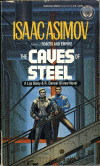When I learned that Stephen Hawking died, I have to admit my reaction was a bit selfish. I was disappointed that he wouldn’t be able to continue contributing to science, and that the world would be a worse off place without him. I didn’t think about how his close friends and family would be impacted. I was surprised about how sad I felt as well. I can’t say I’ve ever really felt a true pang of sadness upon learning of a celebrity death. Nobody should be surprised that he died, given his long history of health problems, but nevertheless, it was shocking. So why did I react this way now? I browsed through numerous news articles and posts throughout the day today without much reaction, but I felt sad again while reading through BBC’s article on his death, and again writing this post.
Maybe it has to do with recently reading the article “The Beginning of Time” that recently popped up in my news feed. I don’t think I could truly fully understand all of his theories, but I think his explanation here was clear enough to get a good idea. I’ve had The Theory of Everything: The Origin and Fate of the Universe audiobook on my backlog to listen to. I guess I’ll have to bump it up to next in my queue. I was already thinking about taking a break from Sci-Fi / Fantasy soon, so this makes my decision really easy.
Goodbye Stephen! Whatever the reasons, I’m truly sad you’re gone. I’m sure you will be never be forgotten by humanity, assuming we don’t destroy ourselves.

